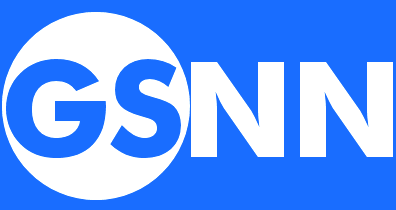 |
Thanks for Playing! |
|
||
|
|
||||
|
MONDAY | TUESDAY | WEDNESDAY | THURSDAY | WEEKEND | PRIMETIME | SCHEDULE | ARCHIVES: 30 90 | WLTI | STATE OF PLAY | ABOUT |
||||
|
Previous Columns Powered by 1&1 Internet |
 with Chris Wolvie |
|
GO The Fast and the Forgettable October 27 |
|
Ladies and gentlemen, the name of the
game is...
One team (red or blue) starts with four players in swivel chairs (for example, we'll call them A, B, C and D from left to right) and the fifth player (the "guesser") ready to move seats just behind them. They choose one of two packets of subjects and, on "GO", A and B construct a question by alternating words between them (A:"What" B:"do" A:"cows" B:"say?"), striking a bell between them to emphasize the question mark. If the guesser answers the question right ("Moo"), the host says, "GO" and the guesser moves between B and C, where the process repeats. The guesser must get five subjects right (A and B, B and C, C and D, B and C again & A and B again) in the fastest time possible, as a clock counts up during gameplay and stops at either the fifth right subject said or the maximum of 99 seconds. Then the other team repeats with the other packet of words, the same clock counting DOWN. If the second team gets five subjects right before the clock hits 0, they win the round and the money. If the clock reaches 0, the first team wins. If the first team doesn't finish four subjects in 99 seconds, the second team wins if they answer more than the first within those 99 seconds. This continues until one team meets or surpasses $1500. That means a team can lose the first two but still win the game if they win the final two. It also means one team can sweep the first three rounds to win the game. In either case, the team that gets to $1500 or more wins the game and advances to the "Jackpot Round". In the
first four weeks, teams were sent home upon losing and stayed until they
lost one or won five games. Afterwards, the same two teams played all
five games of a week, replaced by new teams the following Monday.
If the team swept the
main game in three rounds, they get to play the "Jackpot Round" TWICE,
meaning the maximum they can win per day is $21,500. And, I
must admit, for being a full-time weatherman from Bufallo, Kevin
O'Connell did not do that bad a job. He seemed just as excited as the
contestants were for this game. He was a fast talker, but was able to
get the information about the game in with a minimum of "uh"s and "um"s.
Drew Carey could learn from this guy.. And, yes...we get it...you wanted us to remember the name. It wasn't that hard! You had it in lights in over two dozen places on the set itself...and Kevin constantly saying it during the game helped pound it home! They REALLY made sure that two-letter word got drilled in, didn't they? And
while it's not mandatory that the bonus round be quite different from
the main game ("Joker's Wild" and "Bullseye" proved that), it probably
wouldn't have hurt in this case. Oh, sure, having a different number of
people constructing each question is fine enough...but, if the main game
is boring (and it does get that way after a while), then MORE of it of a
SLIGHTLY different version of it will NOT help! |
|
|
